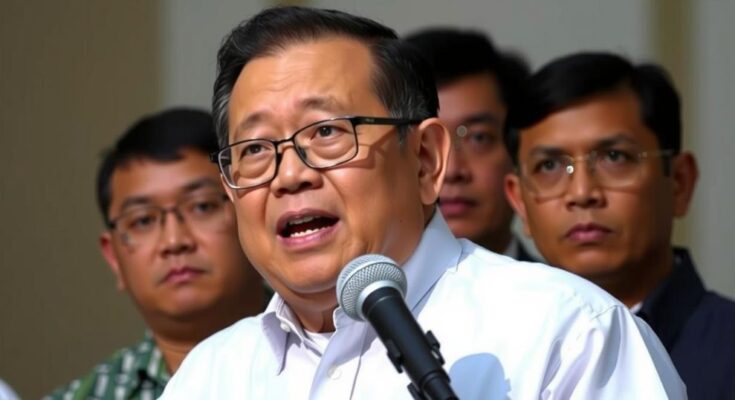President Prabowo Subianto’s plan to pardon corrupt individuals returning stolen assets has been criticized by Lakso Anindito of IM57+, who warns it could increase corruption rates. Anindito advocates for stricter asset recovery laws and independence in law enforcement instead. Prabowo’s approach, presented during a speech in Cairo, aims to provide corruptors a chance to repent without public exposure, raising concerns about its efficacy in tackling corruption.
President Prabowo Subianto’s proposal to grant pardons to corrupt individuals who return their stolen assets has attracted considerable criticism. Lakso Anindito, the Chairman of the Indonesia Memanggil 57+ Institute (IM57+), articulated his concerns during a recent interview. He emphasized that offering leniency to corrupt individuals would undermine the deterrent effect of the law, potentially resulting in a rise rather than a decrease in corruption cases. Anindito further asserted that such a plan fails to address the underlying causes of corruption, perpetuating a cycle of misconduct instead. He urged President Prabowo to prioritize the enforcement of asset recovery laws and strengthen the independence of law enforcement agencies to effectively combat corruption in Indonesia.
During a speech at Al-Azhar University in Cairo, President Prabowo expressed his desire to provide corrupt individuals with the opportunity to repent, suggesting that if they return the proceeds of their illegal activities, they could avoid exposure in public discourse. This stance has been met with skepticism, as critics like Anindito believe it could lead to rationalizations of wrongful behavior among offenders. Anindito articulated that focusing on tangible measures such as asset recovery is crucial to prevent corruption from becoming a normalized practice within society. This perspective underscores the need for tough, decisive actions against corruption rather than leniency that could catalyze further wrongdoing.
The context of this article lies within the ongoing discussion surrounding corruption in Indonesia, a significant issue impacting governance and social trust. The introduction of proposals such as pardoning corrupt individuals reflects broader societal debates on how to effectively manage and deter corruption. Critics argue that leniency could embolden potential offenders, while proponents may see such measures as a pathway to recovery and repentance for past wrongdoers. Understanding this context is essential in evaluating President Prabowo’s proposals and the associated public reactions.
In summary, President Prabowo Subianto’s plan to pardon corrupt individuals has raised alarm among critics who fear it may exacerbate corruption rather than alleviate it. Lakso Anindito’s comments highlight the potential dangers of reducing legal consequences for corrupt practices, emphasizing a need for a more rigorous approach to corruption eradication. Adequately addressing corruption requires a commitment to enforce stronger legal frameworks, ensuring that those who have engaged in corrupt behaviors are held accountable for their actions.
Original Source: en.tempo.co




